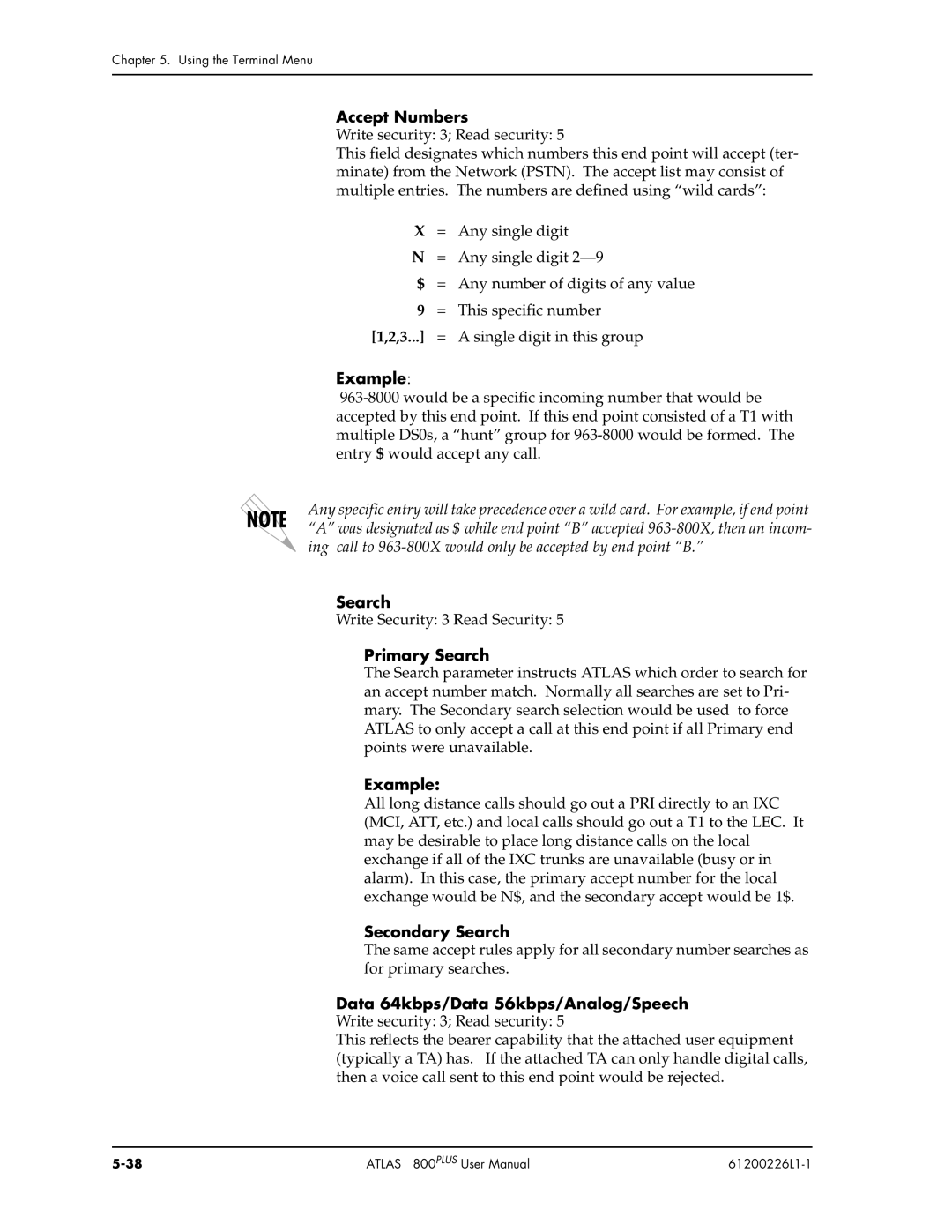
Chapter 5. Using the Terminal Menu
Accept Numbers
Write security: 3; Read security: 5
This field designates which numbers this end point will accept (ter- minate) from the Network (PSTN). The accept list may consist of multiple entries. The numbers are defined using “wild cards”:
X= Any single digit
N= Any single digit
$ = Any number of digits of any value
9= This specific number
[1,2,3...] = A single digit in this group
Example:
Any specific entry will take precedence over a wild card. For example, if end point “A” was designated as $ while end point “B” accepted
Search
Write Security: 3 Read Security: 5
Primary Search
The Search parameter instructs ATLAS which order to search for an accept number match. Normally all searches are set to Pri- mary. The Secondary search selection would be used to force ATLAS to only accept a call at this end point if all Primary end points were unavailable.
Example:
All long distance calls should go out a PRI directly to an IXC (MCI, ATT, etc.) and local calls should go out a T1 to the LEC. It may be desirable to place long distance calls on the local exchange if all of the IXC trunks are unavailable (busy or in alarm). In this case, the primary accept number for the local exchange would be N$, and the secondary accept would be 1$.
Secondary Search
The same accept rules apply for all secondary number searches as for primary searches.
Data 64kbps/Data 56kbps/Analog/Speech
Write security: 3; Read security: 5
This reflects the bearer capability that the attached user equipment (typically a TA) has. If the attached TA can only handle digital calls, then a voice call sent to this end point would be rejected.
ATLAS 800PLUS User Manual |
|
